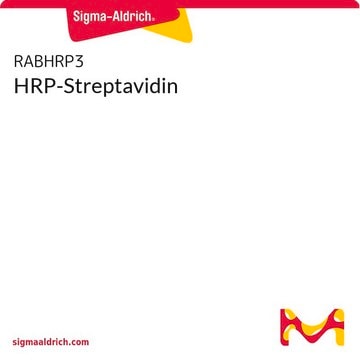SML2135
Biotinyl tyramide
≥97% (HPLC), powder, tyramide signal amplifier
Sinónimos:
(3aS,4S,6aR)-Hexahydro-N-[2-(4-hydroxyphenyl)ethyl]-2-oxo-1H-thieno[3,4-d]imidazole-4-pentanamide, BP, Biotin-Phenol
About This Item
Productos recomendados
product name
Biotinyl tyramide, ≥97% (HPLC)
assay
≥97% (HPLC)
form
powder
color
white to beige
solubility
DMSO: 2 mg/mL, clear
storage temp.
−20°C
SMILES string
O=C(NCCC1=CC=C(O)C=C1)CCCC[C@@H]2SC[C@@]3([H])[C@]2([H])NC(N3)=O
Application
Biochem/physiol Actions
Related product
Storage Class
11 - Combustible Solids
wgk_germany
WGK 3
Certificados de análisis (COA)
Busque Certificados de análisis (COA) introduciendo el número de lote del producto. Los números de lote se encuentran en la etiqueta del producto después de las palabras «Lot» o «Batch»
¿Ya tiene este producto?
Encuentre la documentación para los productos que ha comprado recientemente en la Biblioteca de documentos.
Los clientes también vieron
Nuestro equipo de científicos tiene experiencia en todas las áreas de investigación: Ciencias de la vida, Ciencia de los materiales, Síntesis química, Cromatografía, Analítica y muchas otras.
Póngase en contacto con el Servicio técnico













